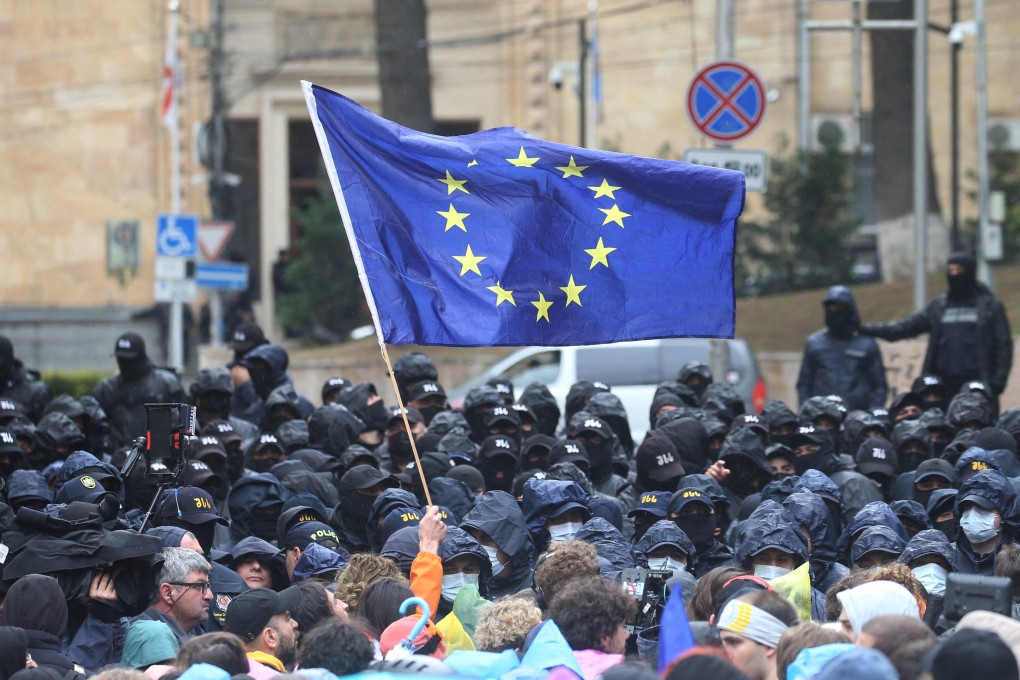EU puts Georgia’s membership bid on hold over ‘foreign agent’ law
- The bloc’s leaders called on authorities to reverse course on the controversial legislation, which opponents fear will silence critics

EU leaders decided to halt Georgia’s progress towards joining the European Union on Thursday over a new law for non-governmental organisations (NGOs) receiving foreign funding.
Under the rules, independent media and other civil society organisations must register as “foreign agents” and submit information to the state if they receive more than 20 per cent of their funding from abroad.
The legislation for NGOs “represents backsliding” on the conditions set out for Georgia to join the bloc, a statement from EU leaders said.
The statement calls on Georgia’s authorities to reverse “the current course of action which jeopardises Georgia’s EU path, de facto leading to a halt of the accession process”.
Georgia has been an official EU accession candidate since December 2023.

Mass protests in Georgia and the intervention of the EU and the United States, which both oppose the law, failed to move the government.
